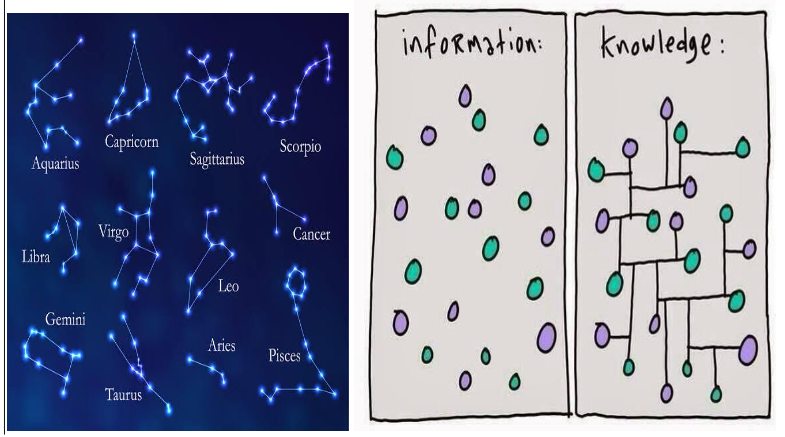Why you need right attitude for business success

Let me start with a quote on ‘Attitude’ and subsequently weave it with the concept of ‘learning and skilling’.
“‘Attitude is a little thing that makes a big difference,” said Sir Winston Churchill.
For the purpose of this article, the definition of “learning is an act of building knowledge”…in other words, a ’collection of dots’. Further, the ability to connect these dots (application) meaningfully and for an outcome would emerge with the application (experience) and it would lead to ‘skilling’.
The Zodiac constellation or Night sky stars lighting up is possibly a good illustration of connecting the dots meaningfully…converting information into knowledge for an outcome -

Now let us look at the diagram below where ‘attitude’ is weaved into ‘learning’. For example: acquiring knowledge by studying automobile engineering or space science and engineering is categorised as ‘ learning’ and designing an ignition switch of a high-precision passenger car or designing a rocket booster of a space shuttle would fall into the ‘skilling’ category –

The diagram depicts that after the stage of ‘learning’ (acquiring knowledge), there comes the ‘skilling zone’…zone of making contributions to the business. The diagram also highlights the fact that if a compatible attitude is not practised in the ‘skilling zone’ (contribution zone), there is a chance of failure.
In other words, to sustain success, we need to combine the right attitude (way of behaving…manifestation of behaviour) in our work practices. It has been observed that focusing only on skilling is not enough for sustainable success.
In the above context, we will examine the story of the Space Shuttle Challenger disaster (1986) and the General Motors (GM) ignition-switch recall crisis (2014).
The Challenger disaster occurred on the 28th January of 1986, when the NASA Space Shuttle orbiter Challenger disintegrated in 73 seconds into its flight and none of the seven crew members survived.
The Presidential Rogers Commission was formed and entrusted with the responsibility to investigate the causes of Challenger disaster and their report stated that the disintegration of the space shuttle began with the failure of an O-ring seal in the solid rocket booster due to the unusually cold temperature (−0.6 degree Celsius) during the launch.
The problem with O-rings was something known to Morton Thiokol engineers (manufacturer of solid rocket booster) and experts of NASA…the night before the launch, there was a long teleconference between rocket engineers at Morton Thiokol and NASA relating to the effect on the O-rings performance in the low-temperature forecast for the launch time…and eventually a launch decision was taken.
A few important questions debated post Challenger blast
- What professional responsibilities were neglected by the best of engineering minds?
- Should NASA have done anything differently in their launch decision?
- Did Morton Thiokol knowingly take extra risks because of fear of losing its contract with NASA?
The story of General Motors (GM) goes like this…the company recalled about 800,000 of its small cars due to faulty ignition switches. What was the fault? The ignition switches could shut off the engine while the vehicle was in motion and thereby preventing the safety airbags from inflating.
The company paid a huge compensation of around $900 million for 124 road accident deaths due to faulty ignition switches. The worst was that the ignition switch fault had been known to highly skilled and experienced engineers of GM for at least a decade prior to the recall in 2014.
To conclude, for sustainable success, it is necessary to build the right attitude while acquiring new skills or mastering the existing skills…the story of the Challenger blast and GM ignition-switch recalls would support this inference.















